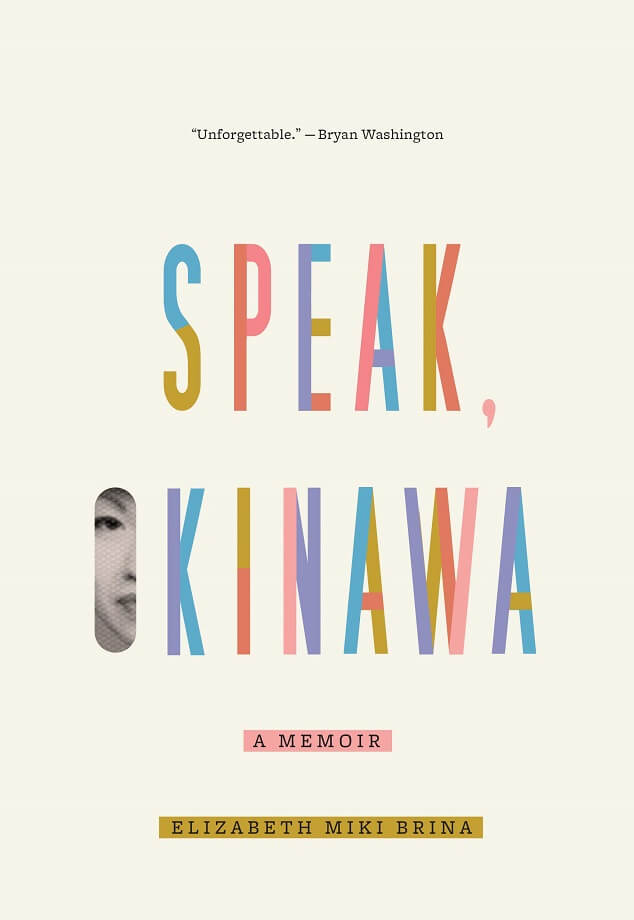10 Mar / Speak, Okinawa: A Memoir by Elizabeth Miki Brina [in Shelf Awareness]

 *STARRED REVIEW
*STARRED REVIEW
Elizabeth Miki Brina claims her voice with resounding clarity in her memoir, Speak, Okinawa. As the daughter of a U.S. soldier with Jamestown ancestry and an Okinawan immigrant mother, Brina’s identity was always a negotiation of race, class, privilege. By opening her stupendous book with her maternal grandmother and leading into the 1945 Battle of Okinawa (“Okinawa had never known such carnage”), Brina adroitly announces her literary intentions: “I had not learned this history, my mother’s history, my history, until I was thirty-four years old. Which is to say I grew up not knowing my mother or myself.” The knowledge she reveals here – about herself, her complex heritage, her history – proves breathtaking.
Brina grew up in a “ninety-nine percent white” Rochester, N.Y., suburb and recognized racial disparity early: “White was always what I strived to be.” That longing estranged Brina from her not-white, not-American, not-English-fluent, not-assimilated mother, Kyoko. As a teenage nightclub waitress supporting her destitute family in U.S.-occupied Okinawa, Kyoko dreamed of escape by marrying an American; her wish fulfilled left her a lonely, isolated alcoholic shamefully dismissed by her only child. Brina’s father was the heroic protector, until Brina came to realize, decades later, that Kyoko “is the one who is stronger now.”
“By being aware, being honest … By apologizing. By forgiving,” Brina begins her own restorative transformation. Interwoven with her nuanced metamorphosis is the inseparable history of Okinawa, colonized by China and Japan and, since World War II, with an unpopular, large U.S. military presence, despite its status as a Japanese prefecture. Moving fluidly between intimate memories and documented history, Brina creates a multi-layered literary gift.
Discover: Elizabeth Miki Brina embraces her complex dual heritage in a gorgeous memoir that also illuminates the devastating colonial history of Okinawa.
Review: “Biography & Memoir,” Shelf Awareness, March 9, 2021
Readers: Adult
Published: 2021
